MikroTik CRS326-4C+20G+2Q+RM Switch Management
On the management front, we get standard MikroTik WebFig for easy browser management. This RouterOS 7 switch supports WinBox as well.

Like other MikroTik switches, it also has a CLI.
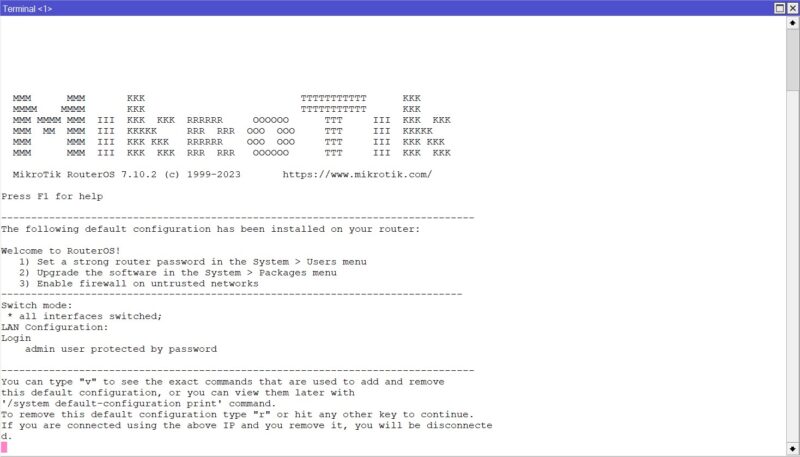
We are not going to spend a ton of time on those since they are fairly standard throughout MikroTik’s range.
Since it is new, we wanted to discuss why these now have a randomized default password.
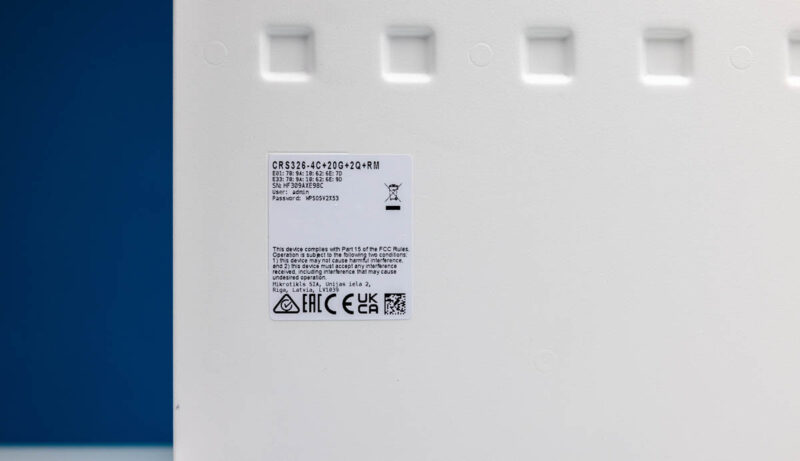
You can learn more about why this is required so the old admin credentials will not work in Why Your Favorite Default Passwords Are Changing.
MikroTik needed to make this change to keep up with regulations.
Next, let us get to the performance.
MikroTik CRS326-4C+20G+2Q+RM Switch Performance
The performance of the switch in L2 mode was pretty much what we would expect. This was the first time having to hook up a 40GbE machine in some time for our switch testing.
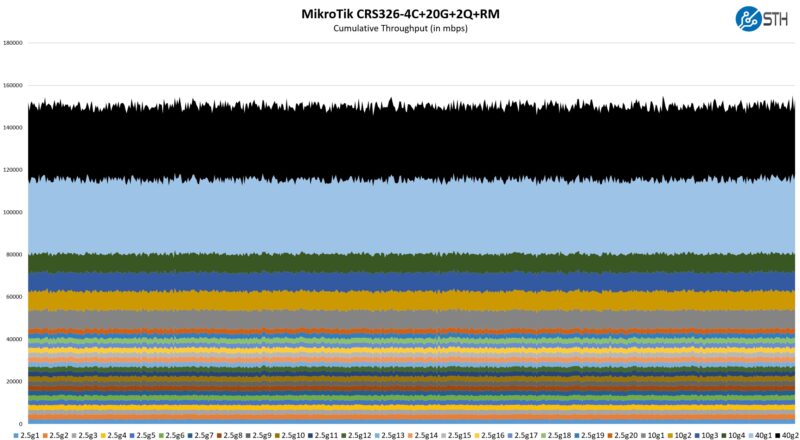
Many may be excited by the fact this has routing features. Still, here are MikroTik’s results on the bridging and routing features:
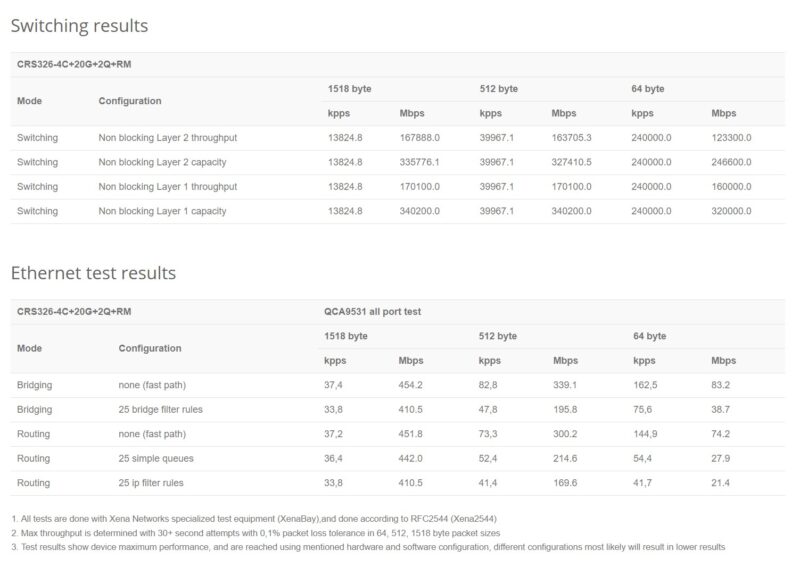
Anyone hoping to do full-line rate routing should look for another platform. This switch has many features, but if you see your routing performance go from, say, 160Gbps down to 0.34Gbps, it is likely you will get a router instead of using the onboard capabilities.
Next, let us get to the power consumption and noise.

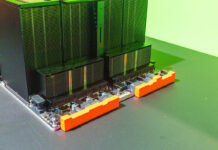


There are a tremendous number of spelling errors in this article!
Does anyone know what happened to the YouTube review of this switch? It appears to have been set to private.
What does “fanless-adjacent” even mean? It either has fans, or it doesn’t. This has fans. It is an actively cooled system.
It is strange no one seems to consider the TP-Link TL-SG3428X-M2 – 24 2.5GbE ports with PoE and 4 SFP+. They’re managed and very cheap – I got mine for just over £412 plus duty.
Sorry, XP and XPP models for PoE.
@Parallax: I got burned on TP-Link PoE and never went back. The unit I had did not galvanically isolate the DC output (which IIRC is part of the 802.af spec), but put -48VDC on the GND PoE conductor (and mains-referenced GND on the PoE positive connector). So when I plugged in any PoE device that had a mains-powered monitor connected, it would connect PoE GND to mains GND via the HDMI cable, which shorted out the switch’s power supply and the whole switch would shut off.
Never went back to any TP-Link PoE product after that experience.
I would prefer they drop the 40GbE and the price. Or leave off the 40GbE and add 4x more SFP+ for the same or similar price.
With the 40g ports, you can split them into four 10g, If my math is correct that is:
Twelve 10g
Twenty 2.5g
I am a huge Mikrotik fan but damn, those model numbers need to be shorter.
Great information
I think that extra fan location is for future POE models
Thanks for the entire STH family
@Art C They’re actually informative:
CRS326-4C+20G+2Q+RM
CRS = Cloud Router Switch (router/Switch modes)
326 = 32 ports (6 iirc is level up support for routerOS or something)
4C = 4 combo ports
20G = 20 2.5G ethernet ports
2Q = 2 QSFP+ ports
RM = Router mode?
For that price, I’d have expected 10GbE capable ports and PoE.
@Evan +RM means Rack Mount. +IN is their desktop version
The problem with reviewing so many firewalls/appliances from AliExpress is that it skews expectations on pricing. I don’t particularly think $900 is bad for this switch and it’s on my short list of upgrades for my rack. For me, having Chinese unbranded equipment is an absolute no go for my supply chain security needs, so I’m willing to pay a bit more.
I noticed in this review you did not test out the newer L3 Hardware Offloading. If that is enabled it should offer full wire speed on all of the ports. The L3 Hardware Offloading is offered in the newer RouterOS v7 releases. I would be interested in those figures.